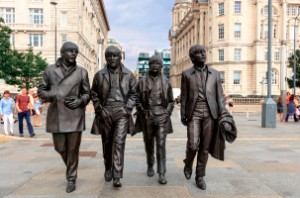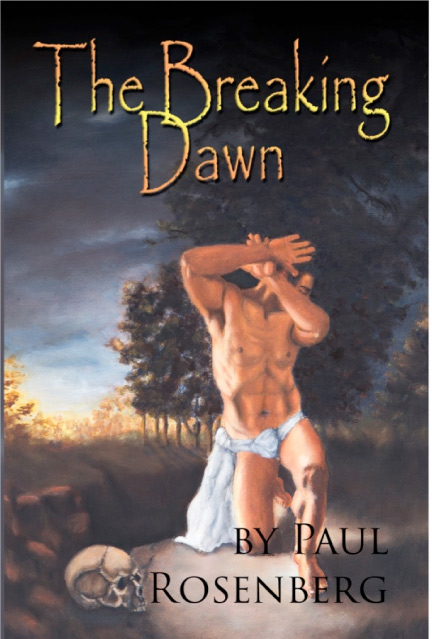 Paul Rosenberg - Freeman**Q**s Perspective
Paul Rosenberg - Freeman**Q**s Perspective
IPFS
BITCOIN AND THE BEATLES
Written by Paul Rosenberg Subject: Bitcoin I've been involved with cryptography since the mid-1990s. That's when I had my "aha" moment and realized that cryptography creates a terra nova the lords of force can't penetrate. Progress, however, was disturbingly slow. We had great ideas, brilliant people, and even some impressive projects. But nothing really stuck. Disheartened, most of us gave up on our world-changing dreams.
I've been involved with cryptography since the mid-1990s. That's when I had my "aha" moment and realized that cryptography creates a terra nova the lords of force can't penetrate. Progress, however, was disturbingly slow. We had great ideas, brilliant people, and even some impressive projects. But nothing really stuck. Disheartened, most of us gave up on our world-changing dreams.
Then, to our great surprise, Bitcoin stuck. And now, finally, I'm facing the possibility of cryptocurrency making some of our dreams come true. And trust me, that's not easy after years of disappointments.
Fun (and Maybe Useful) Parallels
As it happens, I'm starting on a series of stories just now, involving jumps back into the past. Part of the process has been to listen to old music to get a feel for the era I'm writing about. And that led me to my Bitcoin-and-Beatles parallels.
Bear in mind, please, that this isn't only for fun. Both the rise of the Beatles and the rise of Bitcoin are social phenomena, tied to popular acceptance. There may be substance beneath some of this.
But either way, let's have some fun with this idea.
Synthesis
In the cases of both the Beatles and Bitcoin, it wasn't any single thing that made them a big deal, but a synthesis of several factors. Consider:
The Beatles: Yes, the lads were talented and hardworking, but in no way did they stand above the era's best musicians. Paul was a competent bass player, John just an average guitarist, Ringo a professional-level drummer, and George a shyly inventive guitarist. Paul and John were pleasant singers and George was a competent harmonist, but none of them could come close to a singer like Andy Williams. Even when it came to songwriting (their strongest area in my opinion), it's quite debatable that they were as good as, say, Goffen and King.
But taken all together… the synthesis was an earthquake. In 1963, the top 100 songs still included Henry Mancini, Nat King Cole, and Tony Bennett. Fine musicians all, but definitely rooted in the post-World War II era. In 1964, the Beatles blew the doors off everything that had come before, with nine songs hitting the top 100, including #1 and #2.
Bitcoin: No single component of Bitcoin was a revolution in itself. Diffie and Hellman had invented public key exchange back in the 1970s and Ralph Merkle, hash trees back in 1979. Bram Cohen defined P2P networking several years before Bitcoin, and proof of work was previously developed by Adam Back as a cure for spam.
But again, the synthesis was an earthquake.
The Acceptance Pattern
The Beatles (Lennon, McCartney, and Harrison) had been playing together for six years before the broader world noticed. Then they exploded. But after the explosion, as few people remember, they slowly faded. As we said, in 1964 they had nine songs in the top 100. In 1965 they had only four. They had four again in 1966 and lower on the list. In 1967 they had only two songs on the list. By the standard measurements, they were dropping.
1967, however, was the year the Beatles released the Sgt. Pepper album, changing the music business and making the list almost irrelevant.
Bitcoin likewise labored for years before it was noticed. It dropped onto the internet in January 2009, but few people heard of it until the exchange rate rose dramatically in 2016 and 2017. Then the world heard about Bitcoin, which promptly fell into a slump.
So, is Bitcoin's "Sgt. Pepper moment" coming? Consider first that literally billions of people have no bank account and no serious hope of getting one; they are constrained to their local trading circles. They do, however, have smart phones, and that's all they need to use cryptocurrency, opening the world economy to them. Crypto gives them more or less all the advantages banks can provide (and then some), with few of the hassles or fees. Consider also that the value of Bitcoin can't be inflated away like government money. (The dollar has lost 90% of its value since I was a boy.)
So the answer is yes, Bitcoin's (cryptocurrency's) Sgt. Pepper moment is almost certainly coming. It may not be as sharp an arrival as the release of Sgt. Pepper, but it's almost certain. People are not blind to what's in their interest.
Further Parallels
Both the Beatles and Bitcoin had fleeting predecessors. For the Beatles, Elvis and Little Richard had shaken things up some years before, but they were mainly gone. For Bitcoin, the cypherpunks had shaken things up some years before, but they were pretty well gone too.
Both handled their fame admirably. The Beatles were suddenly influencing a hundred million young people while not far past boyhood themselves. But they behaved themselves and moved toward peace and love, admirable directions. Likewise Satoshi: He, she, or they got out of the way and stayed out of the way, which, in retrospect, was probably necessary.
It was just the right time. The world was ready for new music in 1964, but probably no more than it's ready for new money now.
* * * * *
A book that generates comments like these, from actual readers, might be worth your time:
I just finished reading The Breaking Dawn and found it to be one of the most thought-provoking, amazing books I have ever read… It will be hard to read another book now that I've read this book… I want everyone to read it.
Such a tour de force, so many ideas. And I am amazed at the courage to write such a book, that challenges so many people's conceptions.
There were so many points where it was hard to read, I was so choked up.
Holy moly! I was familiar with most of the themes presented in A Lodging of Wayfaring Men, but I am still trying to wrap my head around the concepts you presented at the end of this one.
Get it at Amazon ($18.95) or on Kindle: ($5.99)
* * * * *
Paul Rosenberg
www.freemansperspective.com
























